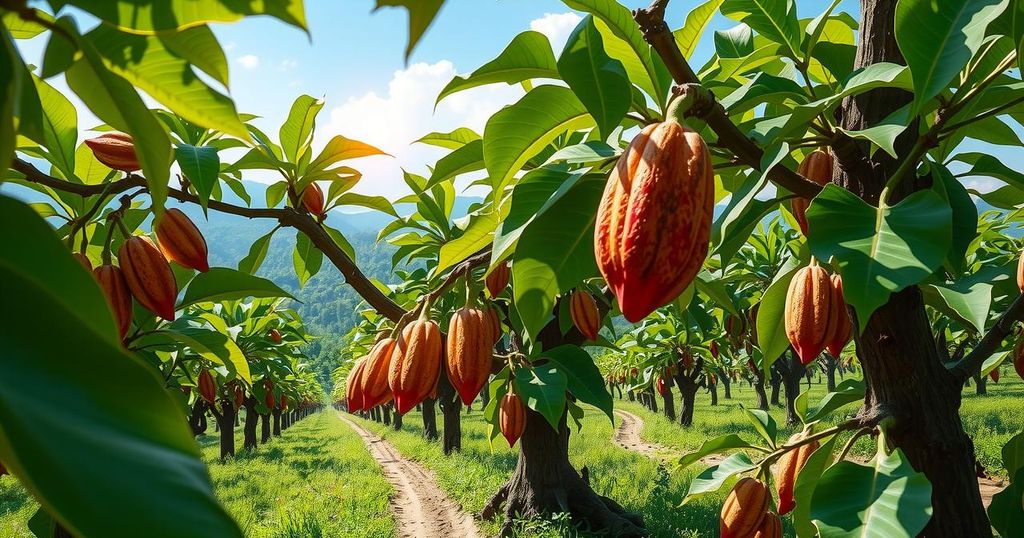Kawa Fund Aims to Aid Small Cocoa Producers in Brazil with $176 Million Initiative

Four Brazilian organizations have initiated the Kawa fund to raise 1 billion reais ($176 million) by 2030 for loans to small cocoa producers. This initiative addresses the financial and technical challenges faced by these producers, aiming to enhance productivity and operational capabilities amidst declining cocoa production and rising market prices.
On Thursday, a coalition of four Brazilian organizations announced the establishment of a fund that aims to secure 1 billion reais (approximately $176 million) by 2030. This fund is set to provide loans specifically to small cocoa growers in Brazil, facilitating their operational expansions. The Kawa fund was introduced by the Arapyau Institute, the investment platform Violet, the advocacy group Toboa, and the impact investor MOV Investments, with an initial provision of 30 million reais designated for 1,200 small-scale producers in Bahia and Para.
Historically, small cocoa producers in Brazil have faced significant barriers in accessing credit and acquiring the knowledge necessary to enhance productivity. Vinicius Ahmar, bio-economy manager at the Arapyau Institute, highlighted these challenges during a recent meeting held by the World Cocoa Foundation in Sao Paulo. “Most of the production is in the hands of small producers and producers on small holdings … in which they are unable to invest and they do not have access to technical assistance,” he stated.
The launch of the Kawa fund is timely, given the pressing issues affecting global cocoa production, particularly in Ivory Coast and Ghana. These leading producers have encountered crop losses attributed to unfavorable weather, bean diseases, smuggling, and agricultural shifts towards illegal gold mining, which have contributed to rising cocoa prices. Furthermore, Brazil’s cocoa production declined nearly 20% last year, with forecasts indicating that 2025 will present additional challenges, as noted by Anna Paula Losi, head of the Brazilian Association of Cocoa Processing Industries.
The Kawa fund will establish a repayment period of three years for loans, which will include an initial six-month grace period. These loans, typically utilized for purchasing crucial resources such as fertilizer, irrigation, and equipment, will incur an interest rate of 12% per year. Notably, approximately 85% of cocoa producers in Brazil operate outside the formal financial system, while around 80% of the nation’s cocoa production arises from small-scale farmers, leading to ongoing issues of low incomes and productivity constraints.
The establishment of the Kawa fund represents a significant initiative aimed at bolstering the livelihoods of small cocoa producers in Brazil. By tackling the financial and technical barriers these producers face, the fund has the potential to enhance productivity and income levels in a sector challenged by declining production rates. With rising cocoa prices and external pressures impacting production regions, the fund’s timely launch aims to cultivate a more resilient agricultural framework within the Brazilian cocoa industry.
Original Source: money.usnews.com








